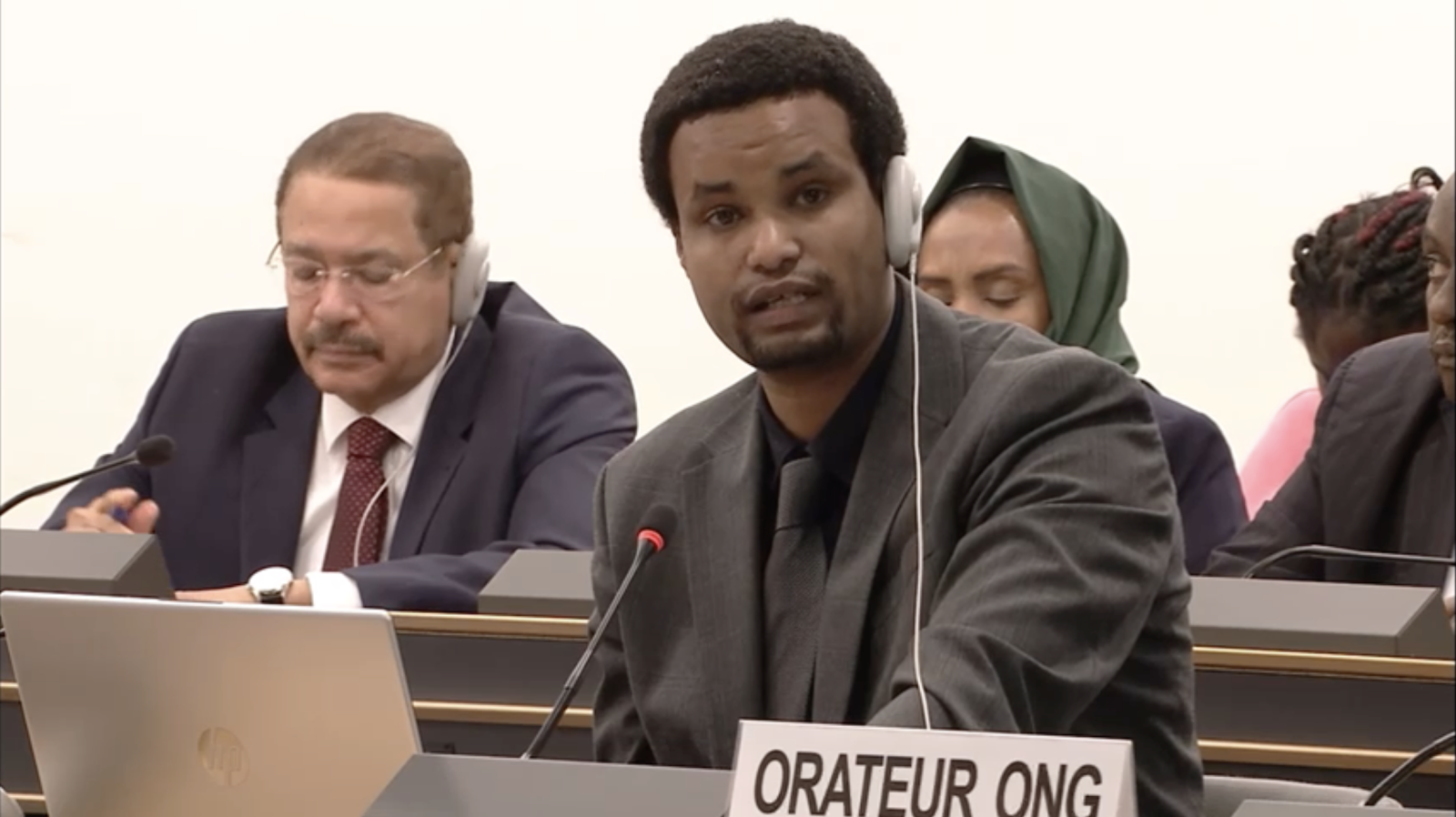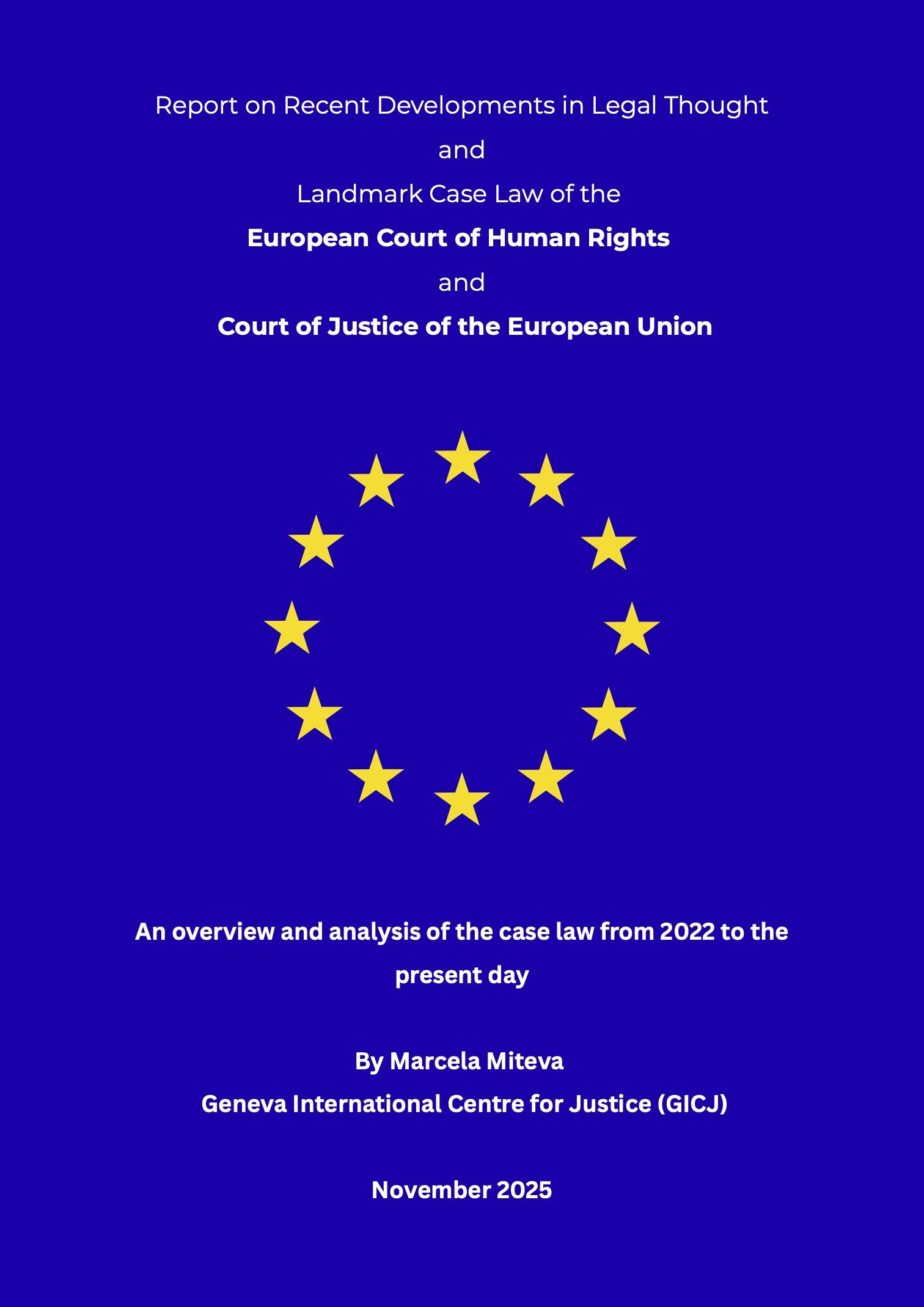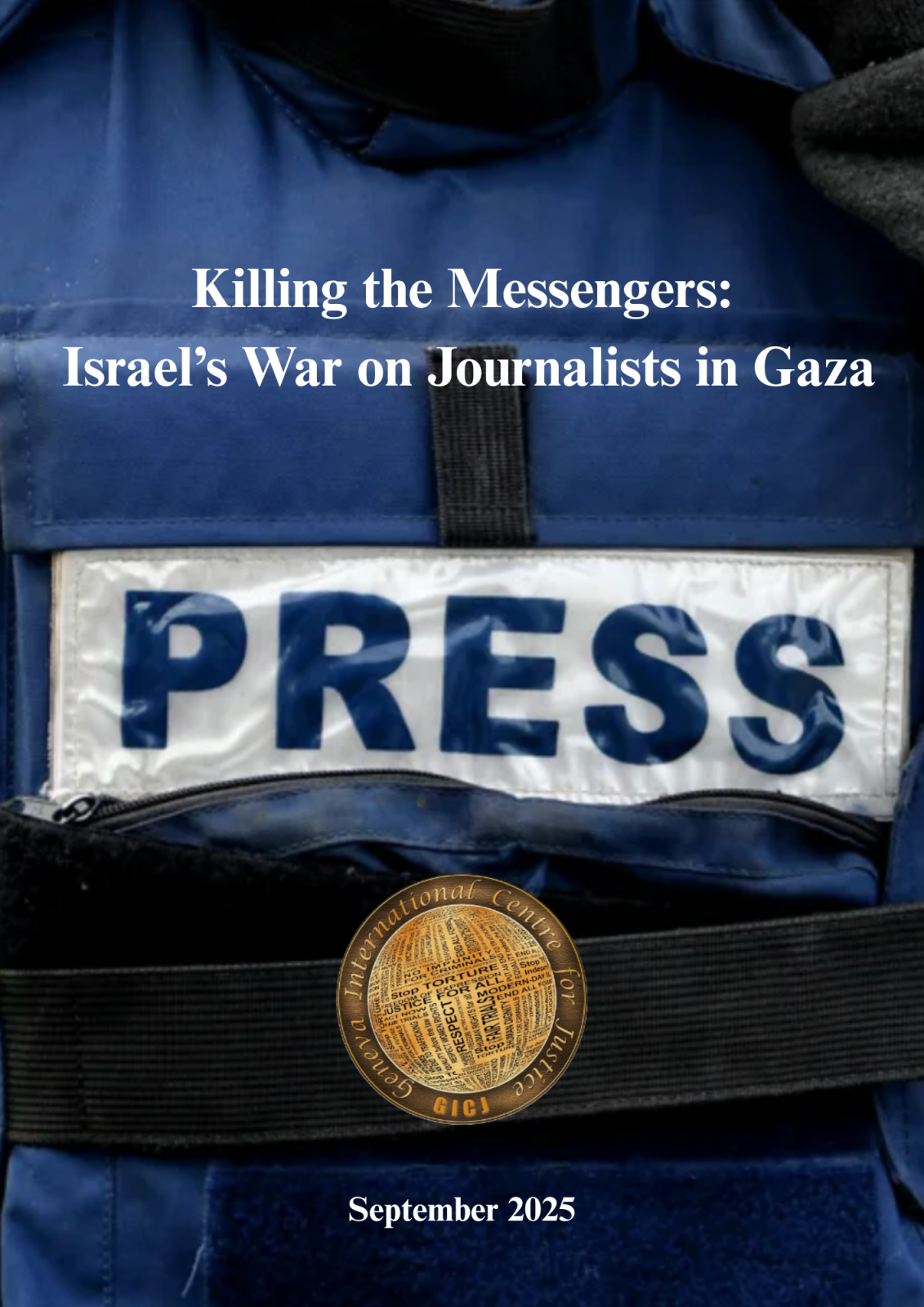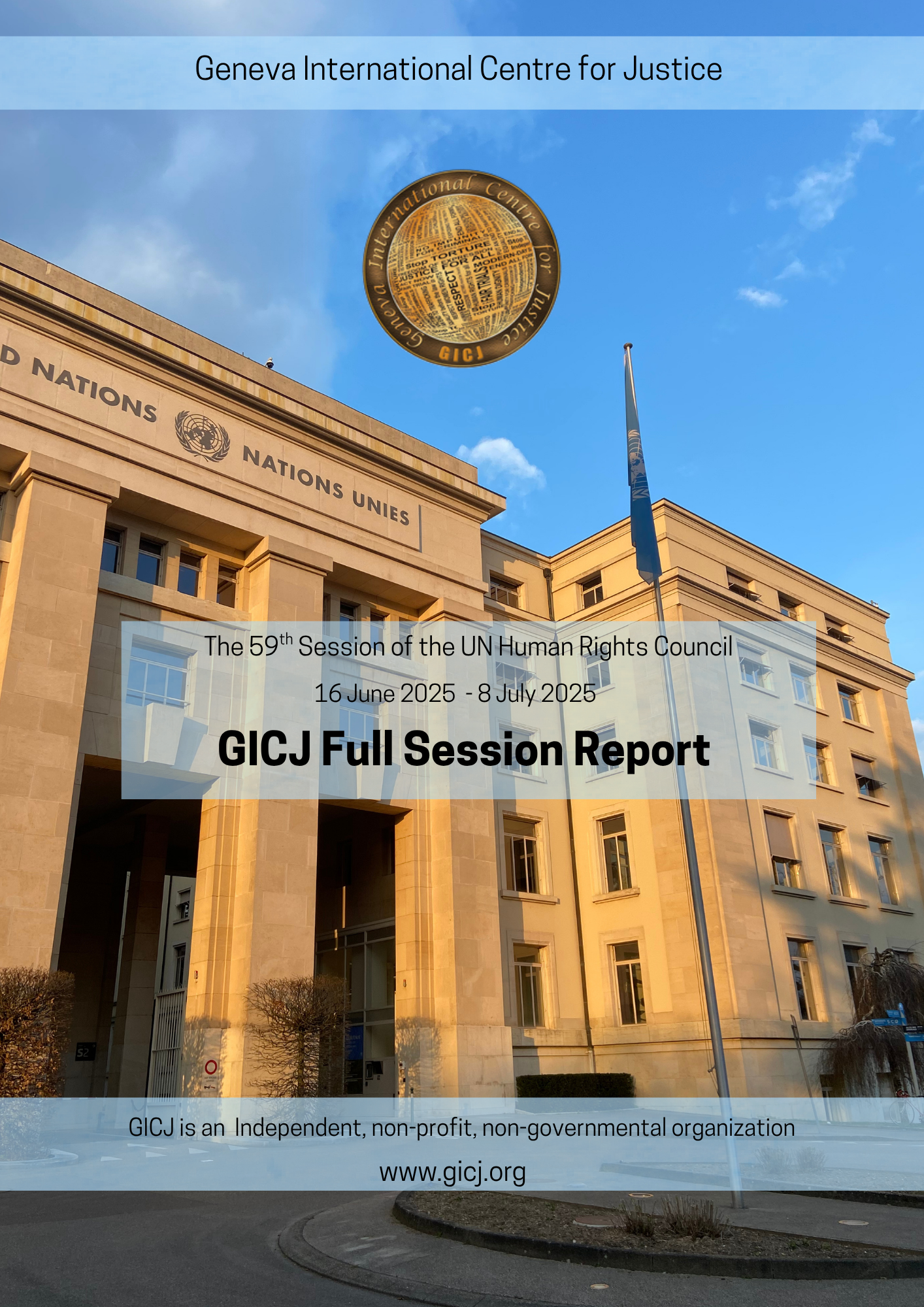20.06.2020
By: Leena Abdelmoity/GICJ
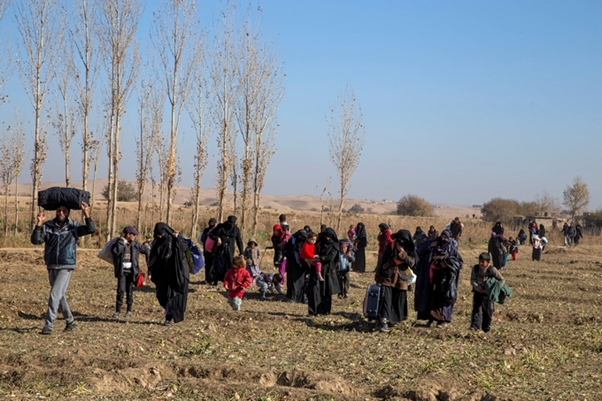
Copyright © Ali Arkady / VII Photo
What Is World Refugee Day?
In 2000, the United Nations General Assembly (UNGA) launched World Refugee Day, a day that brings awareness to the plights of refugees and that focuses on ways the global community can improve the lives of refugees. This important day is held each year on 20 June. This year’s World Refugee Day is unique because during the COVID-19 pandemic, we celebrate refugees who help fight the spread and effects of the virus, their host countries, and the aid workers who support them. Therefore, the 2020 World Refugee Day carries a significant message: no matter who you are or what your circumstances are, everyone of us has the ability to create positive change.
Why World Refugee Day Is Important:
World Refugee Day is important because it builds empathy toward the 26 million refugees around the globe. When people raise awareness on refugees’ burdens, such as escaping their perilous homes, losing loved ones, journeying to a distant land, or living in underserved refugee camps, others may begin to grasp the challenges that they regularly face. This is important now more than ever because of the growing phenomenon of world leaders, such as Donald Trump, Matteo Salvini, Andrzej Duda, Viktor Orbán, and Roberto Fico, employing hate speech to generate and inflame animosity towards refugees. In a time where walls and legal policies are increasingly blocking refugees from seeking asylum, it is crucial to encourage people to empathize with refugees.
Also, by building empathy, this noteworthy day inspires us all to think creatively about ways in which we can help refugees. We are reminded that even the smallest steps taken to help refugees could make an immense difference in their lives.
How to Observe World Refugee Day?
There are many ways to actively participate in World Refugee Day. Creativity is key when trying to brainstorm ways in which you can help refugees. If you need help coming up with ideas, here are a few:
- Attend a United Nations Event: The UN will host virtual live events on 20 June 2020 that discuss the global refugee crisis and what various actors can do to make a difference. If you are unable to attend, you can see summaries of the events posted online after they occur.
- Start a Fundraiser and Donate to the UN Refugee Agency (UNHCR): This option is a great way to make a huge impact if you do not have a lot of time. You can create a page on a crowdsourcing website and send it to family, friends, and coworkers in order to help the UNHCR in its vital operations.
- Volunteer with a Local Organization that Helps Refugees: Volunteering is one of the most meaningful ways you can help refugees because it lets them see people who truly care about them and who know that they matter. Try to use your professional skills to enhance the operations of the organization. For example, if you are a teacher, you can help a local organization by providing free after-school tutoring to refugee children. If you are a graphic designer or trained in website design, try to help an organization improve their social media presence and website, respectively.
It is important that during World Refugee Day, we educate ourselves about the various challenges refugees face- even the ones that are less often talked about.
Overlooked Challenge #1: The Absence of Light in Refugee Settlements
Currently, there are nearly 15 million refugees globally. The unfortunate truth is that ninety percent of refugees who live in settlements do not have access to energy. This must change because an environment without light after sunset is terrible for refugees’ safety and educational opportunities.

Without light, refugees are subjected to danger at night. This danger can come from animals such as snakes and wild dogs that roam camps, or from sexual harassers. Solar lanterns can allow refugees to expose perilous animals and can allow women and girls to feel safer when walking or going to the bathroom at night. This second reason is an especially compelling reason for states to make sure that refugees have the light they need because thousands of females in refugee camps have been sexually assaulted in the dark. Tragically, this fact has left many women and girls having to put on diapers at night to avoid taking the dangerous path to the bathroom.

Also, currently, most refugee children cannot effectively study after dark because they do not have any way to properly see their school materials. This is an issue because during the day, children often help their parents with their work. Thus, children are left with little or no time to learn. Already, only thirty nine percent of refugee children go to primary school. Of the thirty nine percent of refugees who go to primary school, a small percentage can get a quality education because the children cannot learn much after dark. All humans should have access to light- refugees are no exception. To help make sure refugees have solar-powered lights, you can donate to the Light for Refugees Foundation at www.lightforrefugees.org.
Overlooked Challenge #2:2 Psychological Toll of Being a Refugee
A lot of refugees have lost a home, a community, belongings, and loved ones. Because of this, refugees often experience trauma and increased rates of depression, post-traumatic stress disorder, and anxiety. In fact, a new study discovered that half of the Syrian refugees who have fled to Germany are experiencing mental illness and psychological distress due to trauma, including from witnessing and/or experiencing violence. This is problematic because refugee camps are largely understaffed with psychologists and psychiatrists.

Unfortunately, the psychological toll of fleeing is stronger for refugee children. Children are likely to face long-term mental health issues from leaving their homes. In fact, 1 in 5 children suffers from a psychological disorder because of experienced trauma.
Conclusion:
World Refugee Day is a significant opportunity for us all to educate ourselves, to advocate, and to become better allies for refugees. We must address all challenges that refugees face, including those that are often overlooked, such as the lack of light in refugee settlements and the prevalence of mental health disorders among refugees.
Geneva International Centre for Justice (GICJ)calls on all actors, including states, businesses, and individuals around the world, to take this year’s World Refugee Day as a reminder of their moral and legal duties towards the protection of refugees. Their protection must be addressed through appropriate measures and policies which reflect a holistically considered human rights-based approach. These measures and policies must address the intersectionality of discrimination that refugees face and how it is inflamed by hate speech, rejection, intolerance and ensuing violence in the receiving state, which could create an overwhelmingly disempowering situation and act as a further barrier to the enjoyment of their fundamental human rights.
Geneva International Centre for Justice further calls on all actors, including states, businesses, and individuals, to collectively reflect on effective strategies to combat against the root causes of the flow of refugees, especially wars, conflicts, and sudden-onset disasters. By taking a holistic approach towards the development of strategies, policies, and platforms for coordinated action, progress will be made.
Sources: UNGA, UNHCR, UN News, WHO




